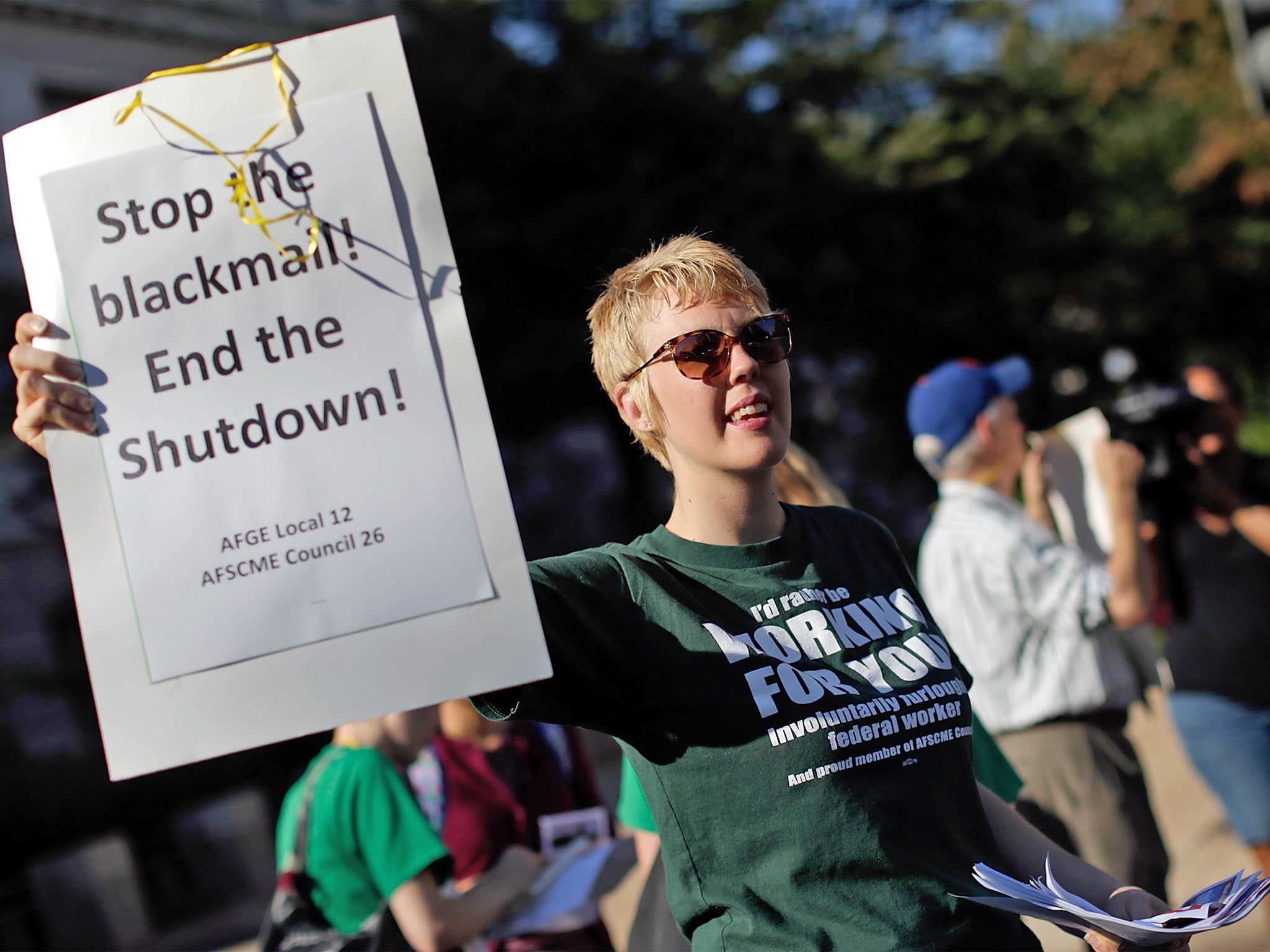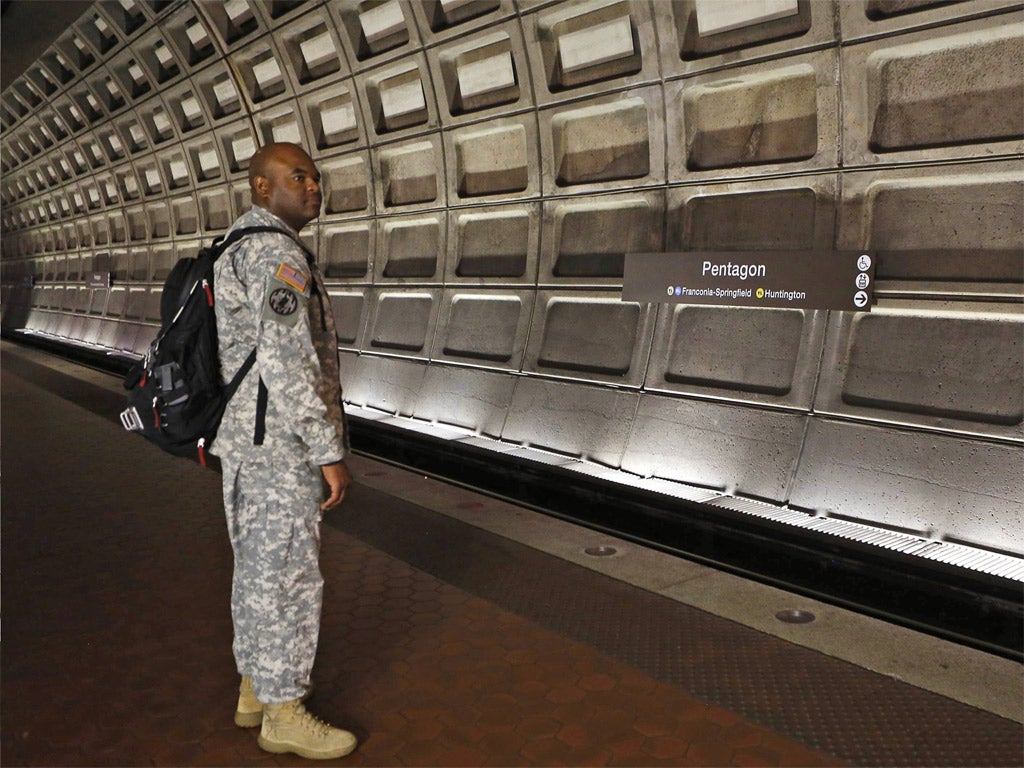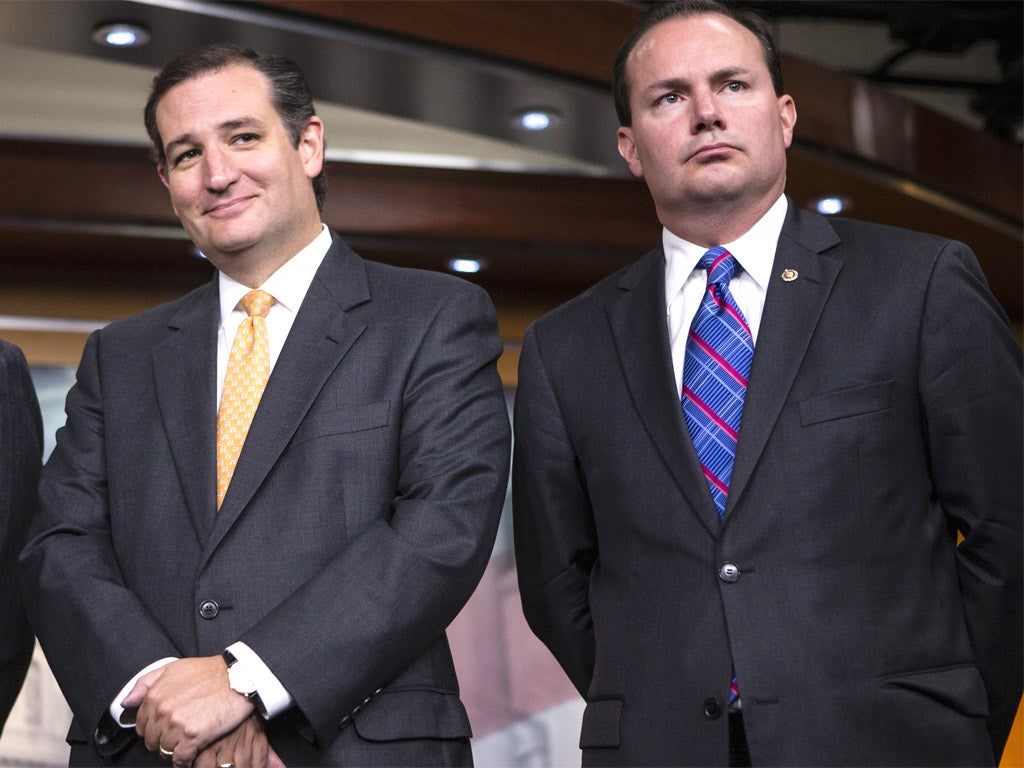US shutdown and looming debt crisis talks between President Obama and Congressional leaders fail to break the policy deadlock
Two issues become entangled as intelligence officials warned the situation 'seriously damages' their ability to protect the country

The first top-level talks to break the policy deadlock between Democrats and Republicans has ended without any sign of a deal to resolve the fiscal impasse that has crippled vast swathes of the US federal government.
President Obama had invited Congressional leaders of both parties to the White House to discuss the ongoing government shutdown and the looming crisis over raising the federal debt ceiling, due to be hit in just two weeks' time. Failure by Congress to approve an increase in the ceiling could force the Treasury into a catastrophic default on US debt, throwing global financial markets into turmoil.
But more than an hour of discussions at the White House ended with little sign of progress, with the Republican Speaker of the House of Representatives, John Boehner, addressing reporters following the meeting, saying: “We had a nice conversation, a polite conversation, but at some point we've got to let the process that our founders gave us work out.”
Meanwhile, top US intelligence officials warned the shutdown “seriously damages” their ability to protect the country. The current situation was a “dreamland” for foreign spies, Director of National Intelligence James Clapper told a Senate committee, saying that some 70 per cent of intelligence employees had been placed on unpaid leave.
“This is not just a Beltway issue,” Mr Clapper added, referring to the Washington DC political universe. The damage was “insidious,” affecting the agencies capability, “to support the military, to support diplomacy, and to support our policymakers.”
Even before the afternoon meeting at the White House, attended by the majority and minority leaders of the House of Representatives and the Senate, it seemed unlikely the talks would open the way to a deal.
Earlier in the day, Republicans were maintaining their stance that any stopgap measure to fund the government, and thus end the shutdown, be accompanied by a delay in implementation of health care reform. Democrats, meanwhile, continue to insist on a “clean” bill, with no conditions, while time and again the White House has declared that 'Obamacare' - whose most important provisions are now coming into effect - is non-negotiable.
Other developments also pointed to a prolonged shutdown. In a curtailment of his Asia trip that starts on his weekend, Mr Obama is still to attend an Apec summit in Indonesia, but will skip the subsequent legs in Malaysia and the Philippines. This will see him back in Washington by the end of next week, as the debt ceiling deadline nears.

The best hope of bringing an early end to the deadlock lies in the outrage of the public, and a rupture in the Republican party, held by Americans to be primarily responsible. So far Mr Boehner, fearful of a right wing uprising that could cost him his job, has refused to assert his authority over House Republicans. But a significant body of House moderates, as well as most Republicans in the Senate, argue that the intransigence of Tea Party and other conservative hardliners is leading the party to disaster.
Seeking to heal these differences and mollify public opinion, Republican leaders have come up with a new plan to restore funding in three areas where the shutdown has generated special fury - the national parks across the country now barred to tourists, veterans' programmes, and federally financed services in Washington DC. The anger was evident this week as visiting veterans, many of them in wheelchairs, broke through barricades around the World War II memorial on the National Mall, closed like other federal parks and museums.
But even if they are approved by the Republican majority House, the exemptions faced certain defeat in the Democratic-led Senate. “We want the release of all hostages, not just a few of them,” one Senator said. “Instead of opening up a few Government functions, the House of Representatives should reopen all of the Government,” the White House added.
In the meantime both parties are playing the blame-game, trying to win the crucial battle for public opinion. Republican hardliners believe that public dislike of Obamacare will ultimately win the day. For the moment though Democrats are far happier, confident that their opponents are on the wrong side of the argument. For the moment at least, that seems to be the case. According to the Quinnipiac poll, an overwhelming 72 per cent oppose a shutdown to stop health care reform.
In wonderland: The Tea Party’s shutdown stars

Ted Cruz
The showboating Republican Senator from Texas has been credited with leading the Tea Party faction in the recent assault against Obamacare. Though he has tried to pin the blame for the partial government shutdown the Senate majority leader, Democrat Harry Reid, polls show the majority of the American people are holding the Republicans responsible.
Mike Lee
Described by some as Cruz’s main ally in the battle against Obamacare, the Republican from Utah is one of the Senate’s most ardent public opponents of act. He has argued it is “not ready” to be fully implemented, and should be delayed and several aspects defunded.
Michele Bachmann
Never one to mince her words, the Congresswoman from Minnesota and Tea Party stalwart has backed Ted Cruz’z efforts, and accused President Obama of trying “to get Americans addicted to the crack cocaine of dependency on more government health care”, according to the right-wing website WorldNetDaily.
Steve King
The fiery Republican Congressman from Iowa has gone as far as to say the shutdown may be a good thing, and that the stalemate will help clarify things for voters.
“This will be decided in the hearts and minds of the American people, who say hold your ground — we don’t want Obamacare — save us from that. Then we can hold our ground and get that done.”
Join our commenting forum
Join thought-provoking conversations, follow other Independent readers and see their replies
Comments
Bookmark popover
Removed from bookmarks